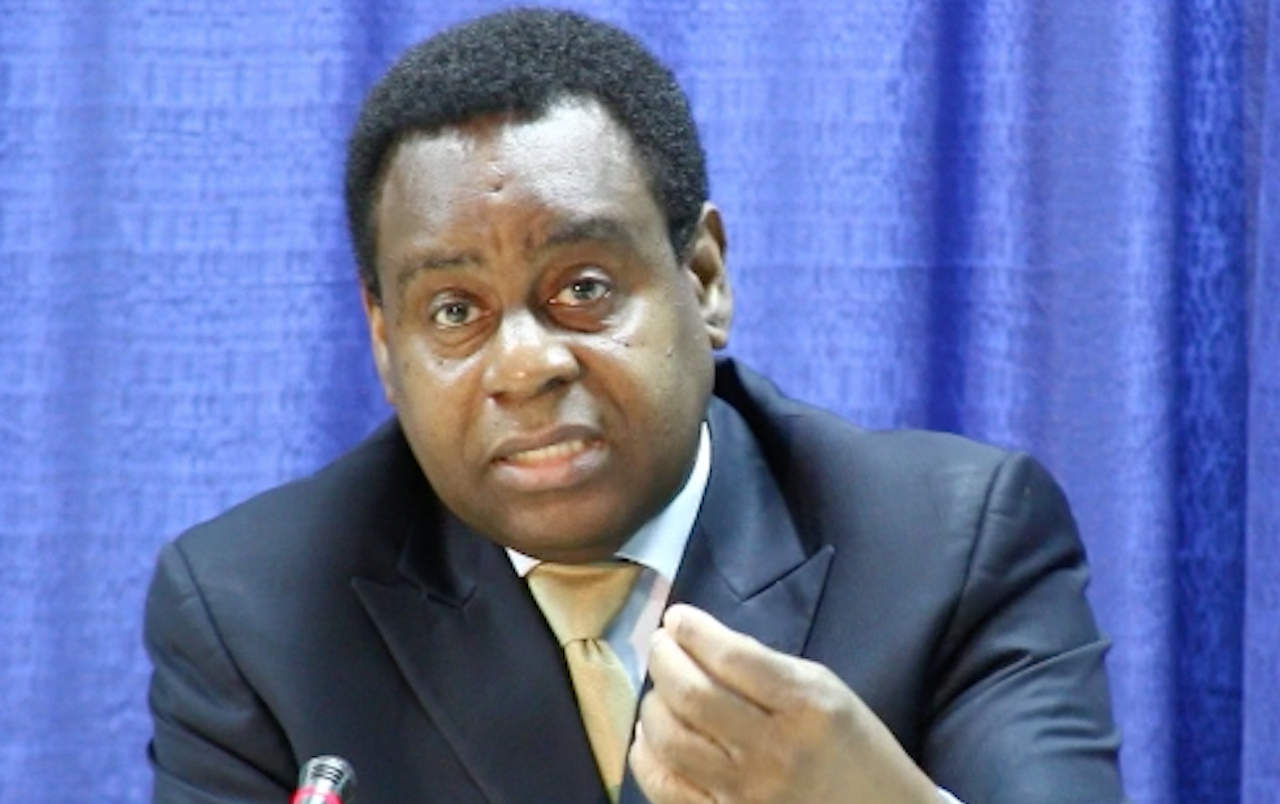Central Bank Governor Cleviston Haynes is banking on the highly-publicised 12-Month Barbados Welcome Stamp contributing significantly to the overall economic development of the country.
However, he said for this to happen it will require a lot of marketing given that other countries were implementing similar programmes.
The welcome stamp initiative, which began two weeks ago and has since seen tremendous interest, will allow visitors to work remotely from Bridgetown for up to a year.
“What we now have to be able to do is to market it to see what the numbers are like,” said Haynes.
“There is competition. It is a great idea and I think others are obviously trying to get their piece of the cake also. But I think the concept is a good one that will benefit the overall economy, once we are able to get those persons here,” he insisted.
Haynes said it would be difficult to say at this point what the contribution to the economy could look like, but estimated that it could have a similar impact to that of an international business company or having dozens of overseas students studying on island.
“Essentially what we are saying is that you have a tourist who is coming to stay on the island not for one or two weeks, but for up to 52 weeks. That translates into spending, whether it be food, getting to understand the island, doing the sort of activities that ‘tourists’ would normally do, it helps the real estate sector too,” said Haynes.
“So all of the ancillary sectors that benefit from a tourism product would stand to benefit from this type of activity. That is the same way in which, let’s say the Ross University works for you, because you have persons here over an extended period. And it is the same thing that happens where you have international business sector bringing persons to work and by living here over that protracted period then that contributes to the overall economic activity,” he explained.
The central bank governor also examined the impact of re-opening the island’s borders to visitors as he expressed hope that other airlines would fill the void created by the collapse of longstanding regional airline LIAT.
Haynes noted that if the borders were to be closed then the already ailing economy would be even worse off and so would “people’s livelihood”.
He said re-opening the borders simply meant managing the risks associated with importing cases of the COVID-19.
“We do need to have economic activity taking place. So we have to manage the risk. We have to manage it at the personal level, we have to manage it at the national level and we have to manage it with those who are coming in and want to take advantage of our beautiful climate,” said Haynes.
“It also means that as a people we will have to obey the protocols that we are encouraged to obey – wearing our masks, sanitizing our hands and physical distancing – and we have to hold those who are coming in, to the same national standards that we have for ourselves. So it is really a question that we have now to manage any risks that may arise from persons coming in,” he explained.
In relation to regional travel, Haynes said should that situation not improve it would “put a damper, not only on tourism but on economic activity generally”.
Pointing out that Barbados was a hub for other destinations, Haynes said airlift to other regional countries would be important.
“The demise of LIAT obviously raises some concerns. I have noticed in the press that there are a number of airlines that are trying to fill that void, and a lot will depend on how effectively they are able to fill the void,” he said.
“Persons in the region need to have those linkages and therefore one would hope that the new airlines coming on stream would cover some of that gap which is being created by the inability of LIAT to deliver the services which they have delivered to us in the past. Barbados will continue to be a hub but in order to be a hub you need airlines to come in,” he said.
Haynes also pointed to the fact that the island had no Crop Over festivities this year because of the pandemic, saying this had resulted in tremendous loss of revenue for a wide cross section of industries and businesses.
The Crop Over festival, which runs from June to the first Monday in August, is said to contribute between $80 million and $120 million annually.




